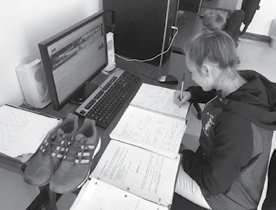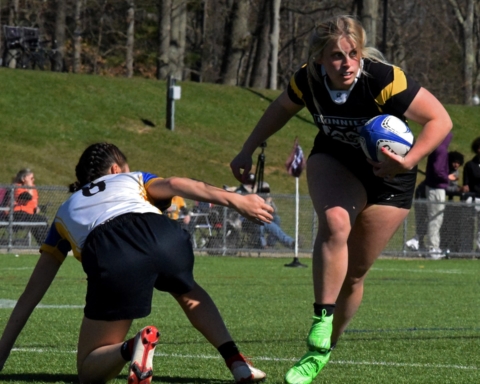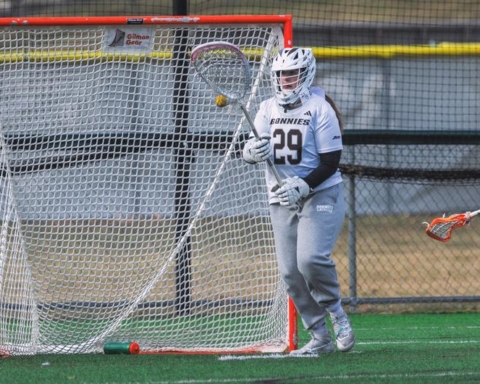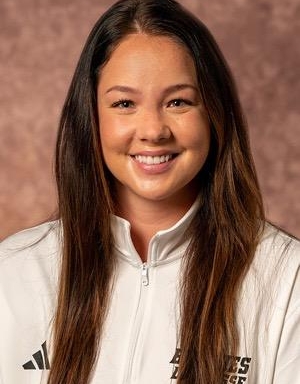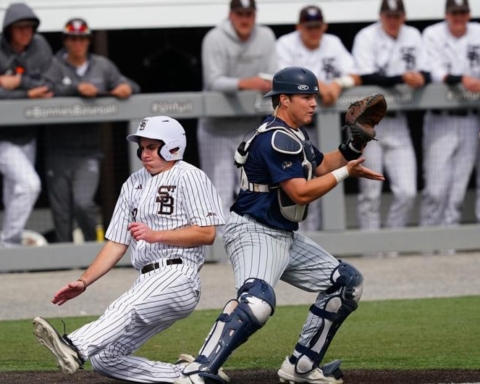St. Bonaventure’s sciences department has a reputation on campus for its intensive classes and interactive labs. It is not uncommon to see biology and chemistry majors in the library a majority of the day, reading chapters and studying for their upcoming tests. With such a hectic schedule already, adding in a responsibility to athletics can prove difficult.
Finding time to balance practices with multiple classes and labs leaves little time for leeway when managing 24 hours in a day. For sophomore cross country and track runner Tristen Reid, time management was not a factor when deciding to major in engineering physics while running track, she said.
“Now that I’m in the heat of my major, I have definitely had thoughts about what it would be like if I wasn’t running,” Reid said. “Would my grades improve? Would I be in the shape that I’m in now?”
Sam Fuller, a biology and history major on the baseball team, knew coming in the workload of athletics and being a double major would be a lot of work.
“I knew going in I was going to have a tougher major, and baseball was always something I wanted to pursue more so than me picking my major,” Fuller said. “I came to the realization I was going to be a bio major after I had already known I was going to play baseball in college.”
Senior swimmer and biochemistry major Jordan Powers said seeing teammates in other majors has made him question his choice of major.
“I spend a lot more time in classrooms or in research labs compared to them,” Powers said. “Sometimes I’m going to the library to study, and they’re going to play video games. Sometimes I’m like, ‘Wow, do I really want to pursue this?’ but it’s an in-the-moment thing. At the end of the day, I wouldn’t want to change my major.”
One of the difficulties for Reid has been the hectic schedule. She said it would be nice if she could do all her work in one sitting, but she often needs to go on a run or go to practice. She said her coach and professors work with her when conflicts arise, although her coach says academics come first.
Powers said it is important to get started on assignments and studying in advance to not get overwhelmed or stay up late and sacrifice performance.
“Your classmates are going to have the luxury of, if you have a test the next day, they can stay up until two, three in the morning studying,” Powers said. “With being an athlete, you’ll have to wake up early in the mornings. You have to study in advance, which is something a lot of people don’t like to do, and manage your time accordingly.”
Planning out the week before it begins is Reid’s technique for managing her classes, practice and work to complete.
“I like to make a list of things I need to, like school work, laundry, or cleaning my room,” Reid said. “I put them in order of what needs to get done first. I find that having a pretty tight schedule makes me feel better. I wouldn’t really know what to do if I didn’t have to do things at a specific time.”
Powers said athletics hasn’t been a hindrance in his academic performance; if anything, it has helped him become more efficient in getting work done and making sure to be regimented.
Fuller had a different story, saying occasionally baseball has gotten in the way of his academics.
“Last year, we had a midweek game with Buffalo, and we traveled all the way to Buffalo, and then we cancelled it because it was raining,” Fuller said. “We pushed it back to the next day, which I had a lab final exam on. I had to make up that lab final another time and make special arrangements with that professor.”
College itself is a commitment, and playing a sport in college adds even more priorities to a student’s schedule. This is a decision that Reid would not change, though. While the amount of work can be strenuous, combining her two passions makes the decision worthwhile.
“I have always loved physics and I’ve always loved running, so I thought that if I really love two things, then I would find ways to make it all work out,” Reid said. “I wouldn’t change my decision for the world.”
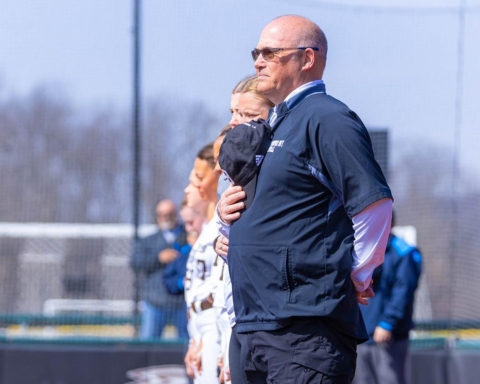
The history of the softball program
Photo: St. Bonaventure Athletics BY NATHAN DONNELLY, CONTRIBUTING WRITER When the St.

